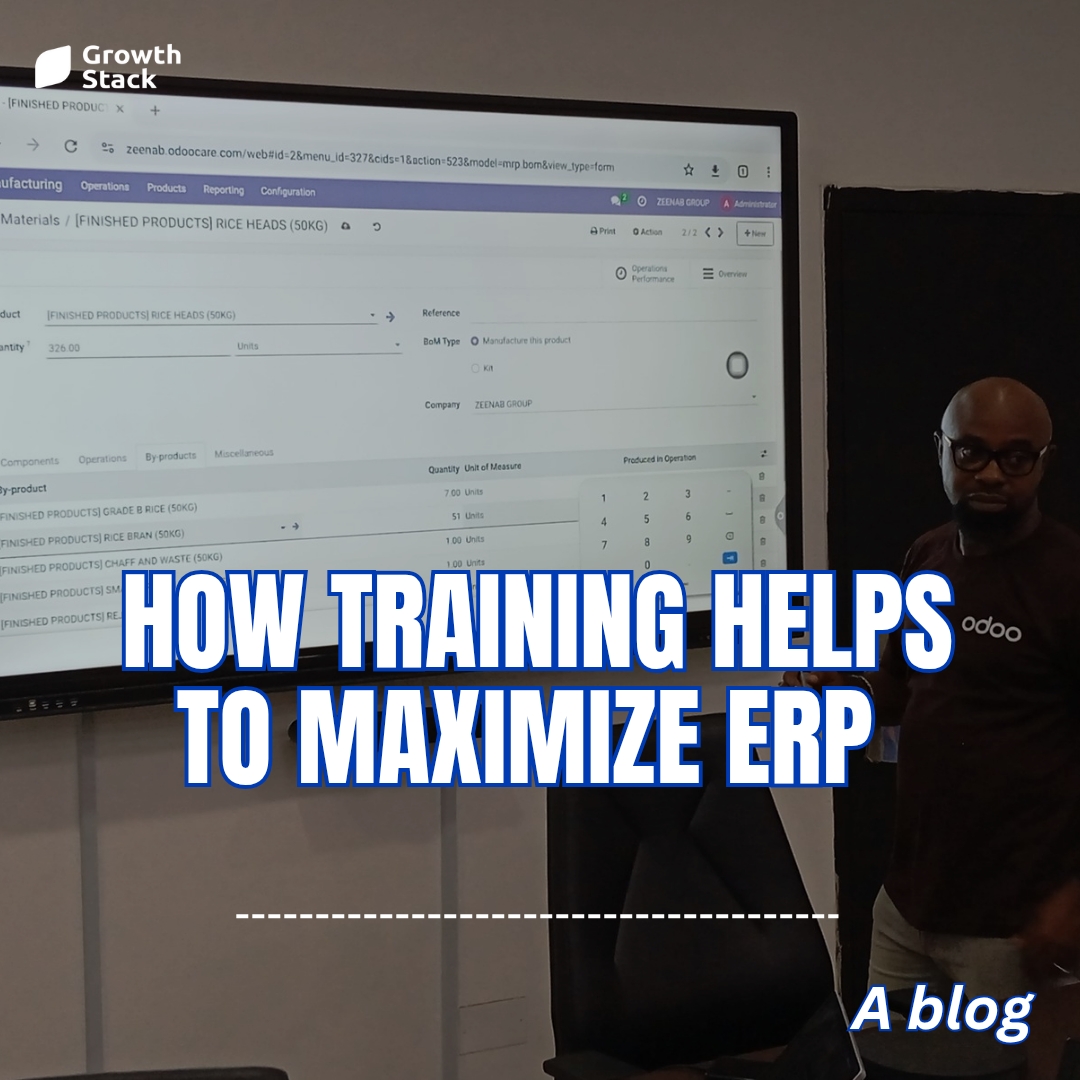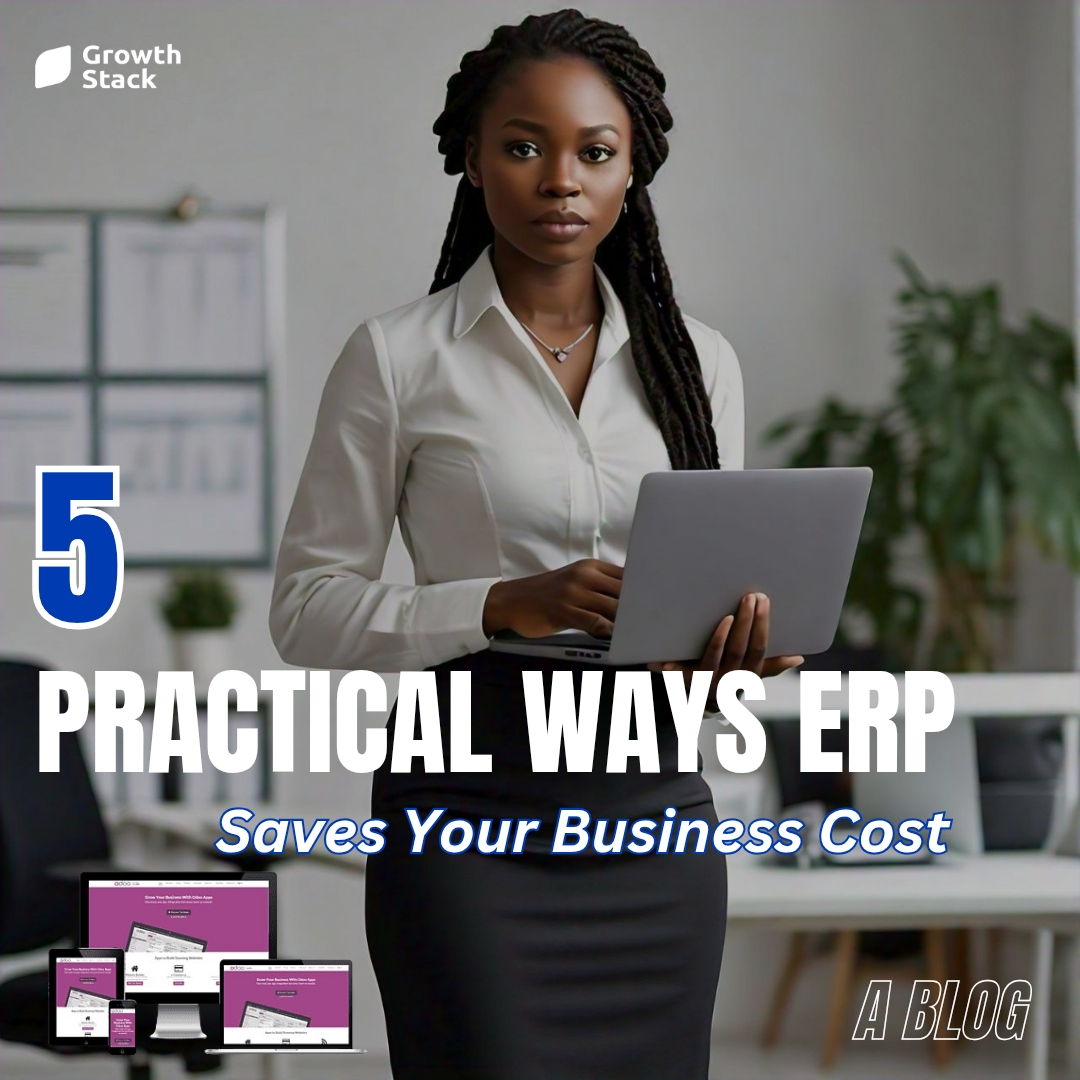What is Odoo ERP, and how does it work?
Odoo, formerly known as OpenERP, is a collection of business applications and modules, including those for accounting, manufacturing management, customer relationship management (CRM), sales, and more. Fabien Pinckaers founded Odoo in 2005 and it is an open-source project. The success of this project is attributed to the fact that it is open-source and inexpensive. Let’s talk about the importance of ERP for Small businesses.
In order to use Odoo, you must first download and install a set of modules. As a result, they are capable of exchanging data quickly and easily between one another. More than 16,000 third-party apps and plugins may be found in the app store for this open-source ERP. With so many plugins, you can be confident that your firm will discover the proper modules for the job.
Businesses of all sizes and requirements can utilize this ERP because it is usually self-hosted and sits in the firm.
Odoo ERP includes a number of useful functions, such as:
- User-friendliness
- Modern and up-to-date
- Connects to third-party applications and services
- Support from all across the world.
- Reduced costs of implementation
- Ready-to-use apps
- Flexibility
In this article, We’ll show you how Odoo ERP can assist a small or medium-sized company.
Businesses of all sizes have grown increasingly intricate as time has passed. The requirement for an integrated system has expanded exponentially as more and more departments are required to operate and share information with one another.
Increasing numbers of small businesses are embracing ERP software. ERP systems, on the other hand, typically become the pillars of many large corporations after they are adopted. As a result, these systems are able to smoothly integrate various corporate activities, including production, inventory management, order processing, and so on. ERP systems such as Odoo are a good example of this type of software.
For Small Businesses, Odoo Offers Several Advantages:
Small businesses can benefit from using Odoo, which can help them become more effective and productive. Some of Odoo’s advantages to your business include the following:
1. It is easier to make decisions using ERP for Small Businesses
Data provided by Odoo is processed in real-time, allowing small firms to make swift decisions. Enterprise companies can save time by making better judgments about inventory management, marketing, and accounting, among other things. Small firms can avoid losses and missed deadlines by making prompt judgments, and they can also get an understanding of what works and what doesn’t.
These businesses can also spot any problems that might be affecting their output. Managers can make rapid, informed choices with an integrated operations report.
2. Increases Productivity
By integrating Odoo ERP into their operations, small businesses might experience an uptick in productivity. Staff members have more time and energy to devote to their primary duties in a company when all operations are coordinated through a single system.
3. Transparency of Data is a Key Aspect
Exporting or re-entering data becomes error-free with the help of Odoo ERP when it’s integrated into your small business. As a result of the integrated system, there are fewer opportunities for data discrepancies or errors to creep in.
In addition, all departments can quickly and easily access any piece of information they need. Maintaining openness, reducing the risk of information inaccuracies, and reducing the cost of human resources are all benefits of this technique of data access.
4. Boosts Teamwork.
Small firms typically find it difficult to achieve their collaboration goals if they don’t have an integrated framework in place. Employees may find it difficult to share data and ensure that it is consistent across all users. As a result, there is a lack of coordination and communication between the teams.
Odoo, on the other hand, enables access to information for everyone in the organization, regardless of their position. The benefit of this is that they can have a better sense of how things work inside the company as a whole.
5. Adapt to the ever-changing business landscape
In today’s fast-paced corporate environment, new fashions emerge daily. In order to keep up with the competition, businesses may have to invest a lot of time and money in adapting to such developments in the industry. This may cost more than the company is able to invest.
Even small firms may take use of Odoo’s low-cost modules to keep up with the latest industry trends, integrate an ERP into their system, and improve their market share. It also boosts their self-esteem and motivates them to compete on an equal footing with the rest of the market players.
6. Boosts Small Businesses’ Competitiveness
Small and medium-sized enterprises can use Odoo’s fully integrated and customisable solutions. The system has matured and is capable of handling the workflows of small businesses, as well as meeting the needs of the entire organization.
Using Odoo as an ERP boosts your business’s confidence because it allows you to customize and personalize your ERP. Another advantage of Odoo over other systems is its low operating and maintenance costs.
Small businesses benefit from all of these aspects when they are combined. It improves operational efficiency and provides a single user interface for the entire organization.
7. Affordability is a plus for your business using Odoo.
Some of the “cheap ERP” choices can leave small businesses with a hole in their wallets. Odoo is one of the most economical and easy-to-use ERP systems on the market. For small enterprises, its affordability means they can get started with the most basic features at the lowest possible cost.
As the demands of a firm develop, the Odoo module can be expanded. Small business owners may control their IT costs and run their businesses using the default capabilities of Odoo.
As a result, Odoo is the most cost-effective ERP for smaller businesses. Regardless of the size of the company, Odoo is a more inexpensive and cost-effective option.
8. Reduction of Expenses
Small businesses can save a significant amount of money by integrating an ERP system into their operations. Odoo accomplishes this by consolidating all of your data into a single piece of software. As a result, it is possible to save money by eliminating the need to manage multiple pieces of software for various departments.
9. A Framework That Can Be Modified
Odoo’s modular design allows enterprises to develop additional business functions that can be easily integrated with Odoo. The needs of small enterprises are distinct from those of larger organizations. Their business needs can be accommodated by Odoo’s capacity to be tailored to their specific needs.
10. The End of the story.
In terms of integrated solutions, Odoo ERP is among the best options for small enterprises. Since they have fewer financial resources and other limitations than larger players in the market, small businesses stand to gain a lot from the system’s many advantages. There are modules for practically any business model available in Odoo, making it easy to manage the entire business unit.
In order to make an informed decision, small businesses should weigh the costs, benefits, and overall return on investment (ROI). One such solution that adheres to all of these criteria is the Odoo ERP platform. One of the most versatile and customizable tools on the market today, it also has an intuitive user interface. For the most part, it is inexpensive and can be used by people of different sizes and income levels.
What Next?
You can start using Odoo ERP today, starting with a package that fits your budget. Click here to learn more about the Odoo ERP pricing for small businesses.













